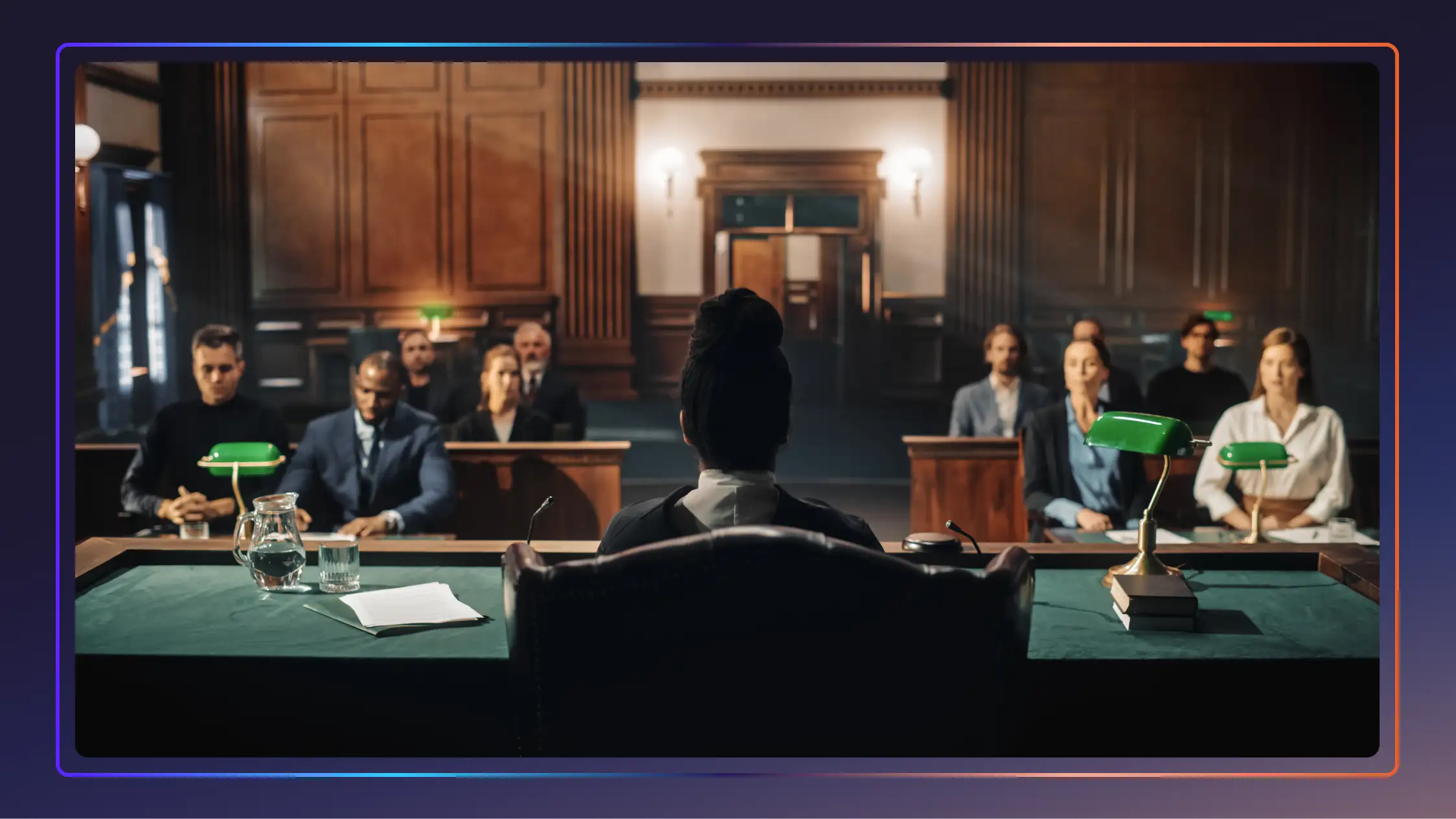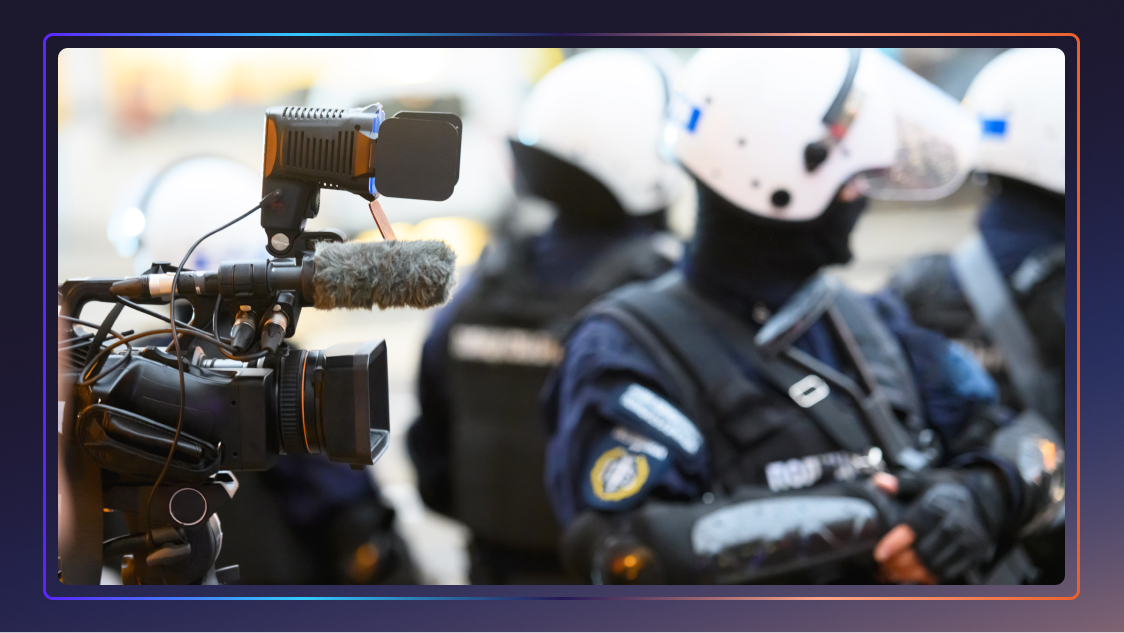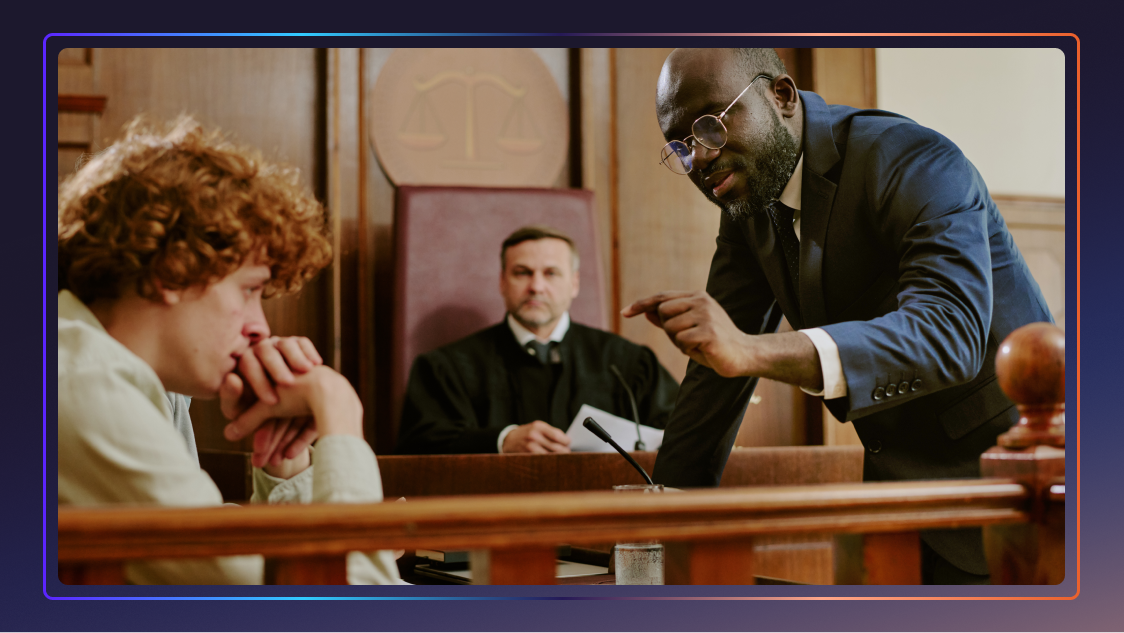What Is a Deposition?
A deposition is a pre-trial testimony taken under oath, common in legal discovery for civil cases. Learn how they work and how today’s legal tech can help.

Depositions are pre-trial testimonies given under oath. As part of the discovery process, they’re frequently used for gathering evidence and evaluating witnesses in civil trials.
They can take several different forms, and various laws apply to how they’re taken and used in a case. The process of collecting and reviewing testimonies can be quite time-consuming, but tools like Rev radically simplify this important work (especially with our acquisition of SmartDepo, the legal industry’s most trusted solution for AI-powered depo summaries).
Here’s everything legal professionals should know about what a deposition is and how to manage the entire process.
Deposition Types
There are several types of depositions, and each plays a distinct role in the legal discovery process. Some of the most common examples include:
- Oral depositions: This is the most common format, in which the witness answers questions in person, under oath, while a court reporter transcribes and records the proceedings.
- Written depositions: With this type, attorneys submit written questions in advance. The witness still must answer the questions (and only those questions) verbally in the presence of a court reporter. This method is more cost-effective but doesn’t allow for clarification and follow-up during the deposition.
- Video depositions: Pre-trial testimonies are now often run remotely and recorded by video, but they must meet strict standards for admissibility. The party taking the video must notify all parties in advance that they will be recording, and even then, it may only be allowed in court if the witness can’t be present or to challenge their in-court testimony.
- Discovery depositions: These are the typical pre-trial, evidence-gathering depositions used in civil cases.
- Preservation depositions: These are conducted to preserve the testimony of a witness who is critically ill, elderly, or otherwise unlikely to be available for trial. These testimonies can replace live court testimony under certain conditions.
Deposition Process: A Breakdown
As a critical component of legal discovery, they must follow a structured process to ensure fairness, legal compliance, and evidentiary value. Here’s a brief overview of what happens before, during, and after a deposition:
Preparing for the Deposition
Before a deposition, both the legal teams and the witness, known as the deponent, must prepare. The deposing attorney sends a formal notice or subpoena with the date, time, and location, including whether it will be held in person, over the phone, or remotely.
Attorneys prepare their questions, review documents, and gather any exhibits they may present during the session. The witness often meets with their lawyer to cover the facts of the case, discuss common questions, and learn how to stay calm and focused while under oath.
This is also when practical questions get answered, such as what to wear to a deposition. Witnesses are expected to dress professionally, in business casual or formal attire. Even though it’s not a court hearing, everyone is expected to show respect for the legal process and appear credible on camera if it’s recorded. Choosing appropriate clothing helps set the right tone and minimizes distractions during testimony.
During the Deposition
During the proceedings, the witness is placed under oath and questioned by the attorneys, starting with the lawyer who scheduled the session. A court reporter (and possibly a videographer) records everything to create an official record. Attorneys may present documents or exhibits and ask the witness to clarify or comment. While the defendant’s lawyers may raise objections during the opposing counsel's questioning, most do not prevent the witness from answering unless there are legal grounds to do so.
Most last a few hours, but more complex cases with multiple parties may require several days. How long a deposition takes depends on the number of questions, the detail of the answers, and whether any disputes arise. Breaks are allowed, and attorneys usually aim to keep the process moving efficiently while gathering the necessary information.
After the Deposition
After a deposition ends, the court reporter prepares an official transcript and shares it with all parties. The witness may be allowed to review the transcript and submit minor corrections, typically through an errata sheet.
Attorneys use this time to analyze the testimony, create deposition summaries to quickly reference key points, and refine their legal strategies. These summaries help identify inconsistencies and support decisions about trial preparation or settlement.
Many people wonder if the final recordings and transcripts are public record. In most cases, the answer is no. Depositions are part of the discovery process, so they are not automatically filed with the court.
They’re typically kept private unless they’re introduced as evidence or included in court filings. Even then, portions may be sealed to protect sensitive information.
Why Are Depositions Important?
Depositions allow attorneys to question witnesses under oath, uncover important facts, and secure testimony for later use in court. Because these sessions are typically recorded and transcribed, they serve as a reliable reference if a witness contradicts themselves during the trial.
Beyond fact-finding, they are integral to shaping legal strategy. Lawyers often use them to decide whether to settle or go to trial, in addition to determining which witnesses or evidence will be most persuasive in court. They also help preserve testimony from witnesses who may be unavailable by the time a case goes to trial.
In short, depositions help clarify the truth, limit surprises in the courtroom, and lay the groundwork for a case’s outcome.
Depo Laws to Know
Depositions are closely regulated under federal and state laws to ensure they’re handled properly. Here are some of the laws and rules that apply to depositions:
- Federal Rules of Civil Procedure: The FRCP contains an entire section on “disclosures and discovery,” with several rules that govern depositions. It sets parameters on everything from reasonable notice for witnesses to conduct requirements for deposing attorneys. For instance, Rule 30 defines duration limits for oral depositions, while Rule 45 pertains to subpoena requirements.
- Attorney-client privilege: Deponents can refuse to answer questions that would violate privileged communication between them and their attorney.
- The Fifth Amendment: Although they take place out of court, depositions allow witnesses to “plead the Fifth” to avoid self-incrimination.
- Right to counsel: Similar to court proceedings, defendants have a right to receive representation during the entire process.
- State or jurisdictional rules: States and local jurisdictions have their own version of civil procedure rules.The California Code of Civil Procedure, for example. requires that witnesses receive at least 10 days’ notice, while the Texas Rules of Civil Procedure require at least 20 days’ notice. Meanwhile, local judges may mandate shorter deposition lengths than the standard seven hours of the FRCP.
Can You Refuse a Deposition?
You can refuse a deposition in limited circumstances, but you’ll face consequences if you do so without a valid legal reason. If you're directly involved in the case (i.e., a plaintiff or defendant) or a non-party served with a subpoena, you're generally required to attend. Refusing could result in court sanctions or contempt charges.
While you can't ignore it entirely, the legal system does offer some options. You may request a protective order or reschedule if the deposition is unreasonable, harassing, or seeks privileged information.
Strategy Tips + Tricks
To get the most out of depositions, you must go beyond writing a list of depo questions or sending required notices. Legal professionals should take care in a few ways before, during, and after the process.
Beforehand, create a deposition outline with key facts and questions. Consider using AI-powered legal summary tools like Rev to review prior transcripts and discovery documents for inconsistencies, gaps, or potential admissions to probe further. Test any tech for audio and video recordings to avoid any surprises later on.
During the proceedings, don’t get too stuck on your line of questions. Follow the conversation and respond to details as they come up. Take notes and flag moments for follow-up, clarification, or possible impeachment.
Afterward, run your recording through Rev for a quick, accurate deposition transcript and summary to extract any key facts or important moments. Share annotated transcripts with your team to facilitate faster trial prep or motion drafting.
Make the Most of Your Case Prep
The details you acquire during this process provide a foundation for building a case and preparing for trial. While you can’t skirt the process of collecting this crucial evidence, you can extract more pertinent information more quickly.
Legal solutions like Rev do more than just accelerate how you prepare, execute, and review depositions. With AI-powered transcriptions and SmartDepo-powered summaries, you can easily highlight the most powerful points to build your case.
Learn more about our smart solutions for modern court reporting agencies.












.webp)


